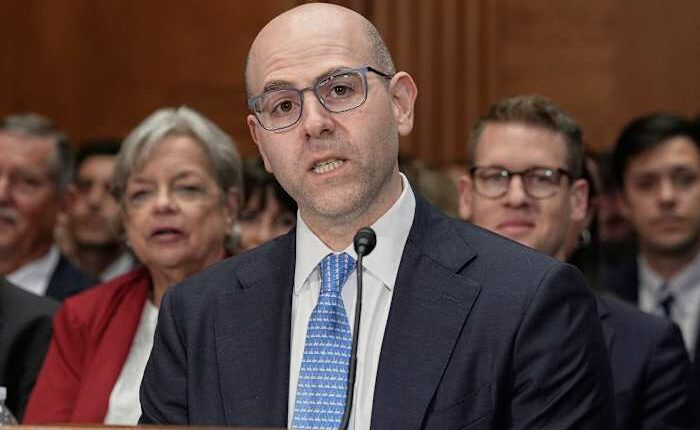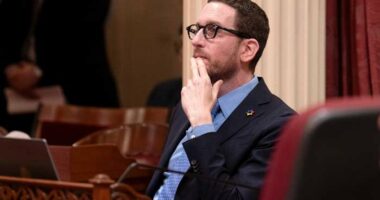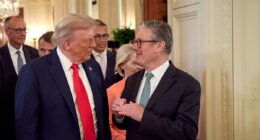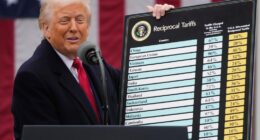Share this @internewscast.com

WASHINGTON – The Senate has confirmed one of President Donald Trump’s leading economic advisers to join the Federal Reserve’s governing board. This decision enhances the White House’s sway over the central bank, just days before a vote is anticipated to lower the primary interest rate.
Stephen Miran’s confirmation vote largely followed party lines, ending at 48-47. The Senate Banking Committee had approved him last week with unanimous Republican support and full Democratic opposition.
Concerns have arisen regarding the Fed’s independence from political influence, as Miran, during a recent committee hearing, stated he would maintain his position as the head of the White House’s Council of Economic Advisers, albeit on unpaid leave. Senate Democrats argue that this dual role could compromise the Fed’s independent status.
Senate Democratic Leader Chuck Schumer cautioned before the vote that Miran “lacks independence” and would simply echo Donald Trump’s directives at the Fed.
The vote was along party lines, with Alaska Sen. Lisa Murkowski the only Republican to vote against Miran.
Miran is filling a vacancy on the board until January, following Adriana Kugler’s unexpected resignation on August 1. He has pledged to leave his White House position if appointed for a longer term. Historically, presidents have nominated advisers to the Fed, such as former chair Ben Bernanke, who served under President George W. Bush, but they typically resigned from their White House roles when joining the board.
Miran, during his September 4 hearing, assured that, if confirmed, “I will operate independently, as the Federal Reserve consistently does, guided by my own evaluation of economic data.”
Last year, Miran criticized what he called the “revolving door” of officials between the White House and the Fed, in a paper he co-wrote with Daniel Katz for the conservative Manhattan Institute. Katz is now chief of staff at the Treasury Department.
Miran’s approval arrives as Trump’s efforts to shape the Fed have been dealt a setback elsewhere. He has sought to fire Fed governor Lisa Cook, who was appointed by former President Joe Biden to a term that ends in 2038. Cook sued to block the firing and won a first round in federal court, after a judge ruled the Trump administration did not have proper cause to remove her.
The administration appealed the ruling, but an appeals court rejected that request late Monday.
Members of the Fed’s board vote on all its interest rate decisions, and also oversee the nation’s financial system.
The jockeying around the Fed is occurring as the economy is entering an uncertain and difficult period. Inflation remains stubbornly above the central bank’s 2% target, though it hasn’t risen as much as many economists feared when Trump first imposed sweeping tariffs on nearly all imports. The Fed typically would raise borrowing costs, or at least keep them elevated, to combat worsening inflation.
At the same time, hiring has weakened considerably and the unemployment rate rose last month to a still-low 4.3%. The central bank often takes the opposite approach when unemployment rises, cutting rates to spur more borrowing, spending and growth.
Economists forecast the Fed will reduce its key rate after its two-day meeting ends Wednesday, to about 4.1% from 4.3%. Trump has demanded much deeper cuts.
Copyright 2025 The Associated Press. All rights reserved. This material may not be published, broadcast, rewritten or redistributed without permission.











